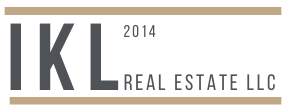Embarking on the journey of purchasing your first home is a monumental milestone that combines excitement, anticipation, and a fair share of complexity. The process, though intricate, becomes manageable with a structured approach, beginning with meticulous budgeting and culminating in the closing of your new home. This comprehensive guide aims to illuminate each step, ensuring a smooth transition from aspiring homeowner to proud property owner.
The cornerstone of any successful home-buying experience is establishing a realistic budget. This begins with a thorough assessment of your financial situation, including a detailed examination of your income, expenses, savings, and outstanding debts. Understanding your financial health helps determine how much you can afford to spend on a home. It is advisable to use online mortgage calculators to get an estimate of your potential monthly payments based on different loan amounts, interest rates, and loan terms.
One critical aspect of budgeting is saving for the down payment. Traditionally, lenders prefer a 20% down payment to avoid private mortgage insurance (PMI), which can add a substantial cost to your mortgage. However, many first-time homebuyer programs offer options with lower down payment requirements. In addition to the down payment, it’s essential to account for closing costs, which typically range from 2% to 5% of the home’s purchase price. These costs include fees for appraisal, inspection, title insurance, and loan origination, among others.
Another vital component of budgeting is considering ongoing homeownership expenses. Beyond the mortgage payment, homeowners must budget for property taxes, homeowners insurance, utilities, maintenance, and potential homeowners association (HOA) fees. Having a clear picture of these costs ensures you are financially prepared for the long-term responsibilities of homeowners.
Once you have a solid budget, the next step is obtaining mortgage pre-approval. Pre-approval is a process where a lender reviews your financial information and commits to providing you with a loan up to a certain amount, pending final approval. This step is crucial as it gives you a clear understanding of how much house you can afford and demonstrates to sellers that you are a serious and qualified buyer.
During the pre-approval process, the lender will evaluate your credit score, income, assets, and debts. A strong credit score can significantly impact the interest rate and terms of your mortgage. If your credit score needs improvement, taking steps to pay down debt and correct any errors on your credit report can enhance your borrowing power. Having all necessary documentation, such as tax returns, pay stubs, and bank statements, readily available can expedite the pre-approval process.
With a pre-approval letter in hand, you can confidently begin the house hunting phase. This is where the excitement truly begins as you explore different neighborhoods, architectural styles, and home features. Working with a reputable real estate agent can be immensely beneficial during this stage. An experienced agent has extensive knowledge of the local market, can help you identify properties that meet your criteria, and guide you through the negotiation process.
When evaluating potential homes, it’s important to consider not only the property itself but also the surrounding community. Factors such as school districts, proximity to work and amenities, safety, and future development plans can significantly influence your decision. Creating a list of must-have features and deal-breakers can help narrow down your options and keep your search focused.
Once you find a home that meets your needs, the next step is making an offer. Your real estate agent will assist you in drafting a purchase agreement that outlines the terms of your offer, including the purchase price, contingencies, and proposed closing date. Contingencies are conditions that must be met for the sale to proceed, such as a satisfactory home inspection, appraisal, and financing approval.
Negotiation is a critical aspect of the offer process. The seller may accept your initial offer, counter with different terms, or reject it outright. It’s important to remain flexible and open to compromise while staying within your budget. Once both parties reach an agreement, the offer becomes a binding contract, and you move forward to the next phase: due diligence.
The due diligence period involves a series of inspections and assessments to ensure the property is in good condition and worth the agreed-upon price. A professional home inspection is highly recommended, as it can uncover potential issues with the property’s structure, systems, and overall condition. Depending on the findings, you may negotiate repairs or a price reduction with the seller.
Simultaneously, your lender will order an appraisal to determine the home’s market value. The appraisal protects the lender by ensuring the property is worth the loan amount. If the appraisal comes in lower than the purchase price, you may need to renegotiate with the seller or provide additional funds to cover the difference.
With the inspections and appraisal complete, the focus shifts to finalizing your mortgage. The lender’s underwriting team will review all the documentation to confirm your eligibility and ensure the loan complies with all regulations. This stage may involve providing additional information or clarifying details from your initial application.
Once the underwriter approves your loan, you’ll receive a closing disclosure outlining the final terms and costs of your mortgage. Review this document carefully to ensure everything is accurate and as expected. It’s crucial to address any discrepancies or concerns with your lender before proceeding to the closing.
The closing process is the culmination of your home-buying journey. At the closing, you’ll sign all necessary documents, including the mortgage agreement, deed, and other legal paperwork. Be prepared to pay the closing costs, which may include fees for the lender, title company, and other services. Your lender will provide a detailed breakdown of these costs in advance.
Once all documents are signed and funds are disbursed, you will officially become a homeowner. You’ll receive the keys to your new home, marking the beginning of a new chapter. It’s a moment of immense pride and achievement, reflecting the careful planning, diligent research, and strategic decision-making that brought you to this point.
After closing, the focus shifts to settling into your new home. It’s important to transfer utilities, update your address with relevant institutions, and familiarize yourself with your new neighborhood. Establishing a maintenance routine and creating a budget for home repairs and improvements can help you maintain your property and protect your investment.
Homeownership is a long-term commitment that requires ongoing financial management and proactive maintenance. By adhering to a budget, staying informed about market trends, and planning for future expenses, you can enjoy the many benefits of owning a home while building equity and financial stability.
The journey from budgeting to closing as a first-time homebuyer is a multifaceted process that requires careful planning, informed decision-making, and perseverance. Each step, from assessing your financial readiness to signing the final documents, plays a crucial role in achieving your goal of homeownership. By approaching the process with diligence and utilizing the resources available to you, you can navigate the complexities of the real estate market and secure a home that meets your needs and aspirations. The reward of owning a home is not just a place to live but a foundation for building a future filled with stability, security, and the pride of ownership.

